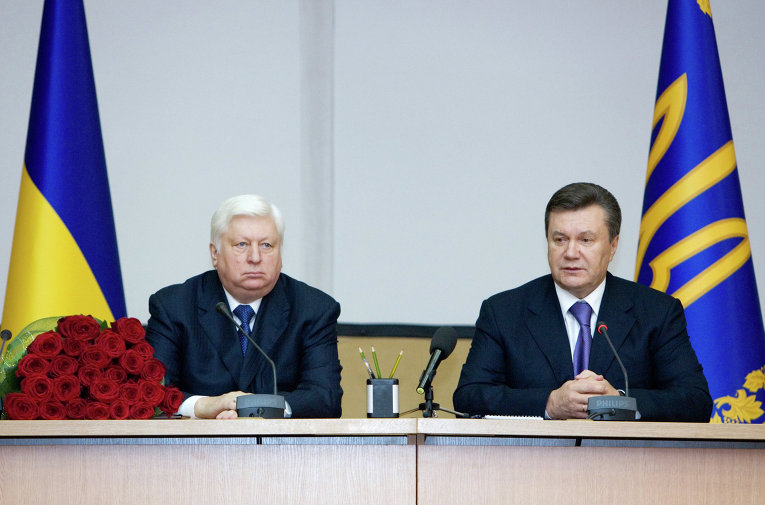KIEV, May 20 (RAPSI) – Ukraine’s Prosecutor General’s Office is in talks to obtain the archives of ex-Prosecutor General Viktor Pshonka with a “paramilitary group” that took part in the Maidan protests. The prosecutors believe that the archives contain information about the authorities’ struggles against the protestors, the office’s press service announced on Monday.
Some time ago, the online paper Ukrayinska Pravda published excerpts from Pshonka’s archives that dealt with the authorities’ struggle against the Maidan protestors and outlined requirements for law enforcement and other state agencies’ information policy during the riots in Kiev. In particular, the archives allegedly say that the blame for the dispersal of students on November 30 should be put on the authorities.
On the night of November 29/30, 2013, police dispersed a pro-integration demonstration in central Kiev. The Ukrainian authorities later admitted that the police overreacted. The de facto Kiev authorities have put the blame for all incidents during the Maidan protests on the former government. The Prosecutor General’s Office has reopened cases against state officials, who were amnestied on December 14, 2013, on suspicion of involvement in the dispersal of the November 30 demonstration.
Charges have been brought against former Kiev Mayor Oleksandr Popov, former head of the Interior Ministry’s Main Department for Kiev Volodymyr Koriak and his deputies Oleksandr Marinenko and Petro Fedchuk.
Ukraine went through a regime change on February 22, when President Viktor Yanukovich fled the country and Western-backed ultranationalist activists rose to power in Kiev. The Verkhovna Rada changed the constitution and set an early presidential election for May 25. Moscow has not acknowledged the legitimacy of the parliament’s decisions.
In early March 2014, the Prosecutor General’s Office instituted four proceedings against Yanukovich, including for calling the public to overthrow the government. In April, prosecutors suspected the ousted president of abusing power because he had refused to declare the Holodomor famine in 1932-1933 genocide, and of creating a “terrorist organization” with former State Security head Oleksandr Yakimenko and former Interior Minister Vitaliy Zakharchenko.



